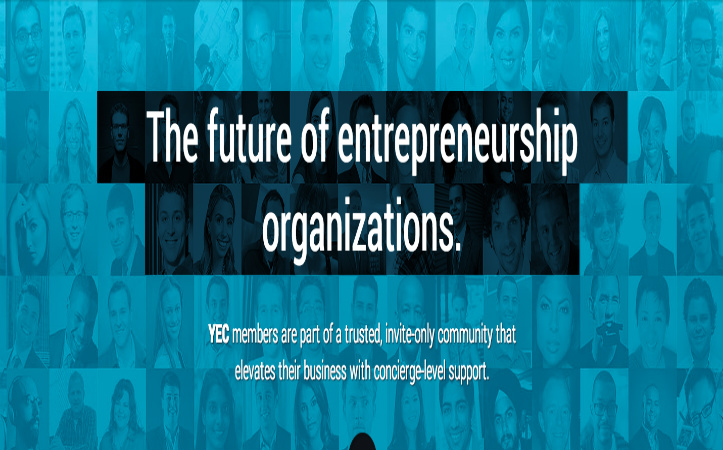Should a company launching an app for the first time do so on a third party platform or invest in building their own? Why?
The following answers are provided by members of Young Entrepreneur Council (YEC), an invite-only organization comprised of the world’s most promising young entrepreneurs. In partnership with Citi, YEC recently launched StartupCollective, a free virtual mentorship program that helps millions of entrepreneurs start and grow businesses.
1. Consider How Much Time You Have
 Building a native app is always recommended because performance is better, you have much more control over the development process and you can really focus on perfecting one OS before moving on to the next. However, the drawback is that it’s time consuming. If you’re really in a rush to get your app to market, that’s the only situation where I’d recommend using a third party platform. – Dave Nevogt, Hubstaff.com
Building a native app is always recommended because performance is better, you have much more control over the development process and you can really focus on perfecting one OS before moving on to the next. However, the drawback is that it’s time consuming. If you’re really in a rush to get your app to market, that’s the only situation where I’d recommend using a third party platform. – Dave Nevogt, Hubstaff.com
2. Validate the Concept With an MVP
 Using a third party is a great way to release an MVP quickly and validate your concept. However, if your company has the resources (both time and capital) and has already proven the concept, then the best choice is to build your own native app, preferable for both iOS and Android. The native approach means your app will be able to take full advantage of your end users’ hardware and device OS’. – Maxwell Finn, Loot!
Using a third party is a great way to release an MVP quickly and validate your concept. However, if your company has the resources (both time and capital) and has already proven the concept, then the best choice is to build your own native app, preferable for both iOS and Android. The native approach means your app will be able to take full advantage of your end users’ hardware and device OS’. – Maxwell Finn, Loot!
3. Consider the Needs of the App
 It depends on how the app will need to change over time. If the app is intended to be single-use, simple and non-evolving, having the app on a third party platform is a quick and cost-effective option. If the app is extremely custom, complicated and/or will need to evolve with customer or industry needs, building the app in-house with an industry standard application stack is recommended. – Dusty Wunderlich, Bristlecone Holdings
It depends on how the app will need to change over time. If the app is intended to be single-use, simple and non-evolving, having the app on a third party platform is a quick and cost-effective option. If the app is extremely custom, complicated and/or will need to evolve with customer or industry needs, building the app in-house with an industry standard application stack is recommended. – Dusty Wunderlich, Bristlecone Holdings
4. Build Your Own
 Most of the time people try to use crossplatform tools to launch an app because it’s cheaper. But if you’re launching a new app as a startup, there are a sufficient number of users on each platform. Its best to go native and focus on one device, either iOS or Android. This way you can build a great user experience, focus on one device and gather valuable feedback. – Randy Rayess, VenturePact
Most of the time people try to use crossplatform tools to launch an app because it’s cheaper. But if you’re launching a new app as a startup, there are a sufficient number of users on each platform. Its best to go native and focus on one device, either iOS or Android. This way you can build a great user experience, focus on one device and gather valuable feedback. – Randy Rayess, VenturePact
5. Go Native for Privacy
 Third party platforms are great. Why reinvent the wheel when you can deliver a cookie cutter app with custom sprinkles for branding purposes? But, when privacy is a key part of your brand, developing an app on a TPP that lets developers see all app activities sort of defeats the purpose. That’s why we went native. We didn’t want to have to warn users as SnapChat warns TPP users. –Manpreet Singh, TalkLocal
Third party platforms are great. Why reinvent the wheel when you can deliver a cookie cutter app with custom sprinkles for branding purposes? But, when privacy is a key part of your brand, developing an app on a TPP that lets developers see all app activities sort of defeats the purpose. That’s why we went native. We didn’t want to have to warn users as SnapChat warns TPP users. –Manpreet Singh, TalkLocal
6. Consider Whether the App Is Your Differentiating Factor
 If you’re building an eCommerce store, your app is not the differentiating factor. It’s your branding and merchandising that matters. In such cases, go with a third party provider. If you are predominantly a software company building unique software, you may not have a choice but to build your own. That said, you should leverage open source libraries wherever possible. – Pratham Mittal, VenturePact
If you’re building an eCommerce store, your app is not the differentiating factor. It’s your branding and merchandising that matters. In such cases, go with a third party provider. If you are predominantly a software company building unique software, you may not have a choice but to build your own. That said, you should leverage open source libraries wherever possible. – Pratham Mittal, VenturePact
7. Just Make Sure You Maintain Control
 It shouldn’t matter where or how you build as long as you maintain 100 percent control of your app and have the ability to do with it as you want. Control means everything. – John Rampton, JohnRampton.com
It shouldn’t matter where or how you build as long as you maintain 100 percent control of your app and have the ability to do with it as you want. Control means everything. – John Rampton, JohnRampton.com
8. Consider Your Financial Resources
 Building an app from scratch can take a lot of time, man power and money. If a company has solidified themselves in their market, has successful sales and revenue and know that their brand is doing well, investing in building an app on their own will be worth it and will allow differentiation from competition. If the company does not have a solid footing yet, platforms should be considered. – Miles Jennings, Recruiter.com
Building an app from scratch can take a lot of time, man power and money. If a company has solidified themselves in their market, has successful sales and revenue and know that their brand is doing well, investing in building an app on their own will be worth it and will allow differentiation from competition. If the company does not have a solid footing yet, platforms should be considered. – Miles Jennings, Recruiter.com
9. Focus on What You Do Best
 With thousands of apps added to the app store every month, a major barrier to success for developers is getting discovered by their target users. The right third-party platforms allow developers to focus on what they do best — developing great products. Look for a third-party platform that takes care of all your business needs including discovery, delivery, distribution and monetization. – Tomer Bar-Zeev, IronSource
With thousands of apps added to the app store every month, a major barrier to success for developers is getting discovered by their target users. The right third-party platforms allow developers to focus on what they do best — developing great products. Look for a third-party platform that takes care of all your business needs including discovery, delivery, distribution and monetization. – Tomer Bar-Zeev, IronSource
10. Consider Where You Add Value
 If the value that the company can add is related to the platform itself, then they should lean towards launching their own. However, if the value-add is centrally focused on another item such as subject-matter expertise, then it may be smarter to leverage this insight on somebody else’s platform. – Kofi Kankam, Admit.me
If the value that the company can add is related to the platform itself, then they should lean towards launching their own. However, if the value-add is centrally focused on another item such as subject-matter expertise, then it may be smarter to leverage this insight on somebody else’s platform. – Kofi Kankam, Admit.me








